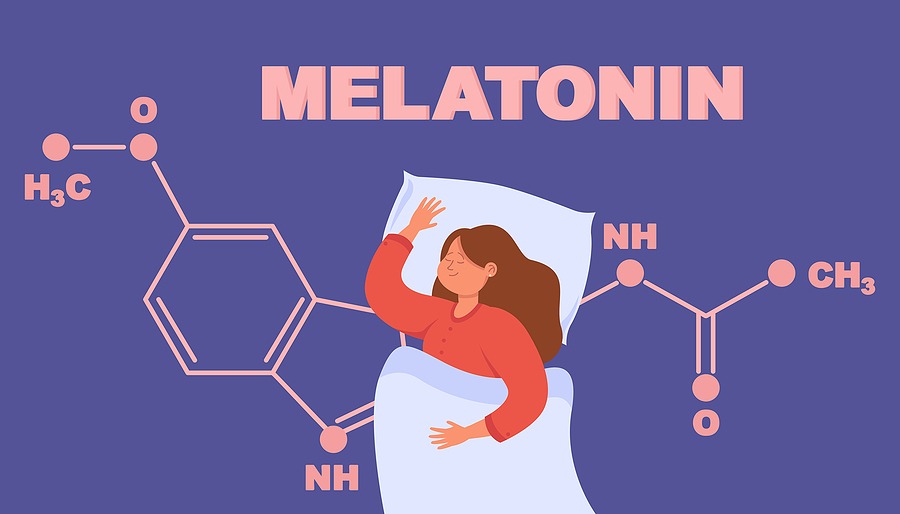Uncategorized
How to Improve Sleep Quality Without Melatonin
Many people struggle with falling asleep or staying asleep, often turning to melatonin supplements for help. While melatonin can be effective for some, it’s not always the best long-term solution. Fortunately, there are natural, sustainable ways to improve sleep quality without relying on melatonin. These methods focus on supporting your body’s natural sleep cycle (circadian rhythm) and creating a healthier sleep environment.
Here’s how you can enjoy deeper, more restful sleep naturally.
1. Establish a Consistent Sleep Schedule
Your body thrives on routine. Going to bed and waking up at the same time every day—even on weekends—helps regulate your internal clock.
Why It Works:
- A consistent routine trains your brain to recognize when it’s time to wind down.
- It improves the quality of REM (rapid eye movement) and deep sleep phases, which are essential for feeling rested.
Tip:
Start by setting a consistent wake-up time first; your bedtime will naturally adjust.
2. Create a Relaxing Bedtime Routine
A calming pre-sleep ritual signals to your body that it’s time to rest. This could include activities like:
- Reading a physical book (avoid screens)
- Taking a warm bath or shower
- Practicing gentle stretches or yoga
- Listening to soft, calming music or nature sounds
Why It Works:
Relaxing routines help lower cortisol (stress hormone) and promote relaxation before bed.
3. Limit Exposure to Blue Light Before Bed
Phones, TVs, and computers emit blue light, which interferes with the production of your body’s natural melatonin.
How to Reduce Blue Light Exposure:
- Avoid screens 1–2 hours before bedtime.
- Use blue light filter apps or “night mode” on devices.
- Consider wearing blue light blocking glasses in the evening.
4. Optimize Your Sleep Environment
Your bedroom should be a sanctuary for rest.
How to Improve It:
- Keep it cool (ideally between 60–67°F or 15–19°C)
- Make it dark with blackout curtains or an eye mask
- Keep it quiet with earplugs or a white noise machine if necessary
- Invest in a comfortable mattress and pillow suited to your sleeping position
5. Watch What You Eat and Drink
What you consume in the hours before bedtime affects your sleep.
Helpful Habits:
- Avoid caffeine after mid-afternoon (coffee, energy drinks, chocolate)
- Limit alcohol, which may disrupt deep sleep later in the night
- Avoid large or spicy meals right before bed
- Try a light snack if you’re hungry—complex carbs with a bit of protein can help (e.g., whole-grain toast with almond butter)
6. Get Natural Sunlight Exposure During the Day
Your circadian rhythm is directly influenced by natural light. Spending time outdoors, especially in the morning, helps regulate your sleep-wake cycle.
Why It Works:
Morning sunlight exposure boosts serotonin levels, which later convert to melatonin naturally at night.
7. Try Herbal Teas and Natural Remedies
Certain herbs can naturally promote relaxation without relying on melatonin supplements.
Great Choices Include:
- Chamomile: Calms the nervous system
- Lavender: Soothes anxiety and tension
- Lemon Balm: Supports relaxation and better sleep
- Passionflower: Helps reduce racing thoughts
8. Practice Stress Management Techniques
Stress and anxiety are major causes of sleep problems. Incorporating mindfulness practices during the day can help you sleep better at night.
Effective Techniques:
- Deep breathing exercises (e.g., 4-7-8 breathing)
- Meditation or guided relaxation
- Journaling your thoughts before bed to “clear your mind”
9. Exercise Regularly (But Not Too Late)
Regular physical activity supports deeper sleep, but timing matters.
Best Practice:
- Engage in moderate exercise like walking, yoga, or swimming during the day.
- Avoid vigorous workouts close to bedtime, as they may leave you feeling too energized.
Conclusion
Improving your sleep doesn’t have to involve melatonin supplements. By focusing on natural habits—like maintaining a regular sleep schedule, limiting blue light, and managing stress—you can help your body fall asleep more easily and wake up feeling refreshed. The key is consistency and creating an environment that supports your natural sleep rhythms.
Start with one or two of these strategies, and over time, you’ll likely see significant improvements in your sleep quality—naturally and gently.

